Chapter 4, Part 3
Two years after the Portuguese conquest of Malacca in 1511, Jorge Álvares sailed to the Far East and became the first Portuguese to ever set foot in China – at the Pearl River Delta to be precise. However, it took another four decades for the Portuguese to be allowed by the Ming dynasty rulers to stay onshore and build storage as well as rudimentary housing. Less than a decade later they built their first permanent settlement in Macau by agreeing to pay an annual rent in silver to the Chinese rulers.
In the following decades the Portuguese grew as the most prominent European power in the Far East with Macau as the seat of their colonial administration in East Asia. Macau’s growing significance was further affirmed with the establishment of the Roman Catholic Diocese of Macau and the colony’s own Senate in the second half of the 16th century.
The Ming dynasty let the Portuguese conduct their trade and economic affairs from Macau largely peacefully. However, in the 17th century the Dutch, who by then had grown into a prominent power in Asia, attempted to take Macau from the Portuguese hands. A futile military campaign which resulted in victory for the Portuguese successfully kept the Dutch away.
As more European players entered the lucrative trade with China by dispatching large numbers of vessels to the Orient, the trade balances were increasingly leaning toward the Chinese favor as the Europeans imported a lot of goods from China but exported only a fraction of their imports. This was made possible due to Chinese self-sufficiency for most of their necessities. To change this unfavorable balance, the British introduced opium – harvested from their South Asian colonial possessions – to the Chinese market in the 19th century. In a relatively short time the highly-addictive narcotic drug had created huge problems to the Qing dynasty who, as a retaliatory action, imposed severe limitations to the European trade in China, resulting in the First and Second Opium Wars.
Victory turned its back on the Chinese side, leading to a series of treaties which would immensely benefit European trade interests in China. The Portuguese, whose influence in Asia had profoundly been reduced by that time, annexed Taipa and Coloane, two small islands to the south of Macau, following the setbacks suffered by the Chinese. They also unilaterally ceased the annual payment for colonizing Macau which had been paid to China since the 16th century.
At the turn of the 20th century, Portuguese presence in Asia was concentrated in Goa and several coastal enclaves within the British Indian Empire, Portuguese Timor surrounded by the Dutch East Indies, and Macau at the doorstep of China. In 1961 India invaded Goa, Daman and Diu, ending more than 450 years of Portuguese rule in the subcontinent. Thirteen years later the Carnation Revolution occurred, an event which restored democracy in Portugal and bolstered movements for independence in Portuguese colonies around the world. In 1975 Portuguese Timor proclaimed their independence from Portugal, only to be annexed by Indonesia – whose territory was largely inherited from the Dutch East Indies – several days later.
This momentum was soon exploited by China – already a Communist country by then – to renegotiate the status of Macau. Finally, in 1999 Portugal relinquished their control of Macau back to China, ending more than four centuries of Portuguese administration in the port city. In fact Macau was the last Portuguese colony in the world. China granted Macau the Special Administrative Region (SAR) status, similar with Hong Kong which was returned by the British two years earlier. This status ensured both SARs’ autonomy to use their own currencies, have separate legal systems from China, join international organizations where membership is not limited to sovereign states, preserve freedom of speech, and implement democracy. Officially both Macau and Hong Kong are guaranteed SAR status for 50 years. But taking the heed from the situation that has been developing in Hong Kong in the last few years, Macau’s special status looks increasingly fragile. Only time can tell what will happen to the former Portuguese colony in 2049, when the SAR status expires.
Click here for the full list of stories from the Spice Odyssey series.
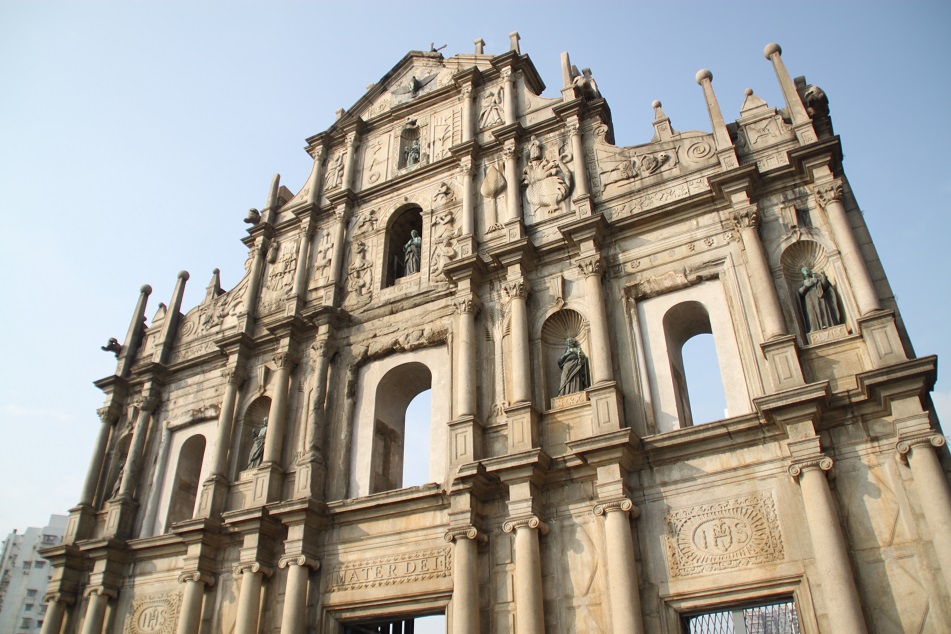
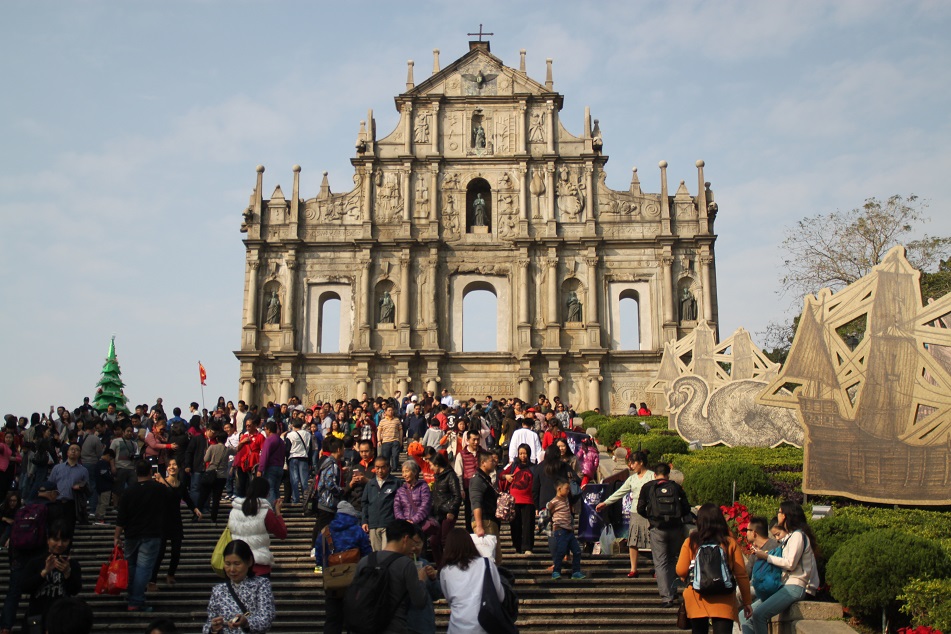
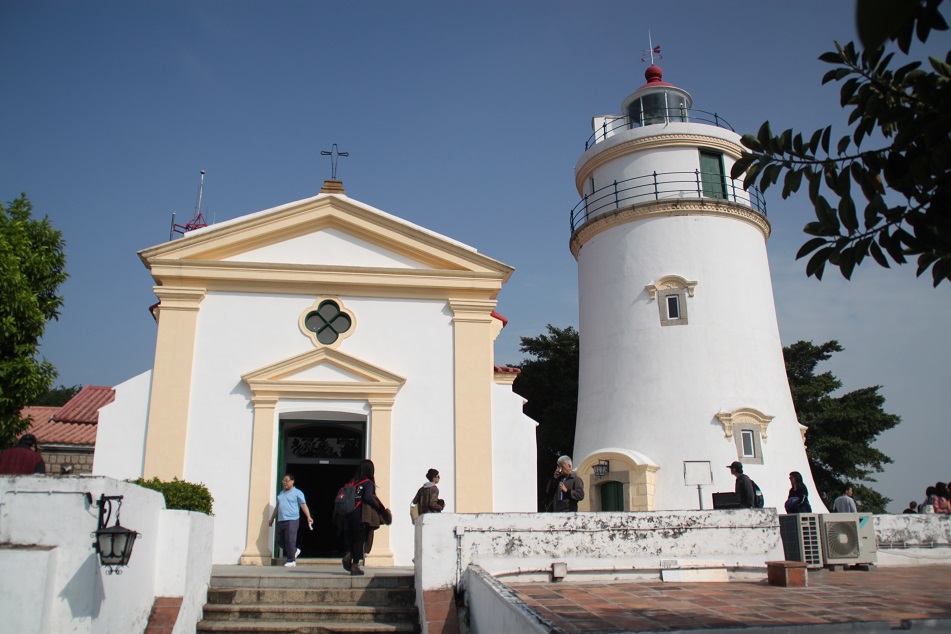
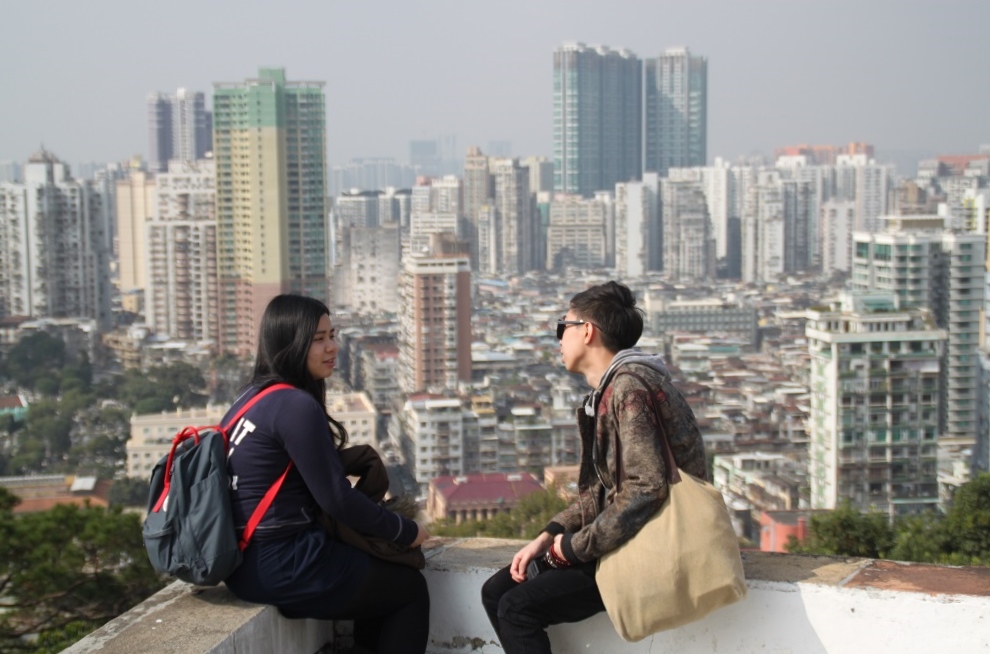
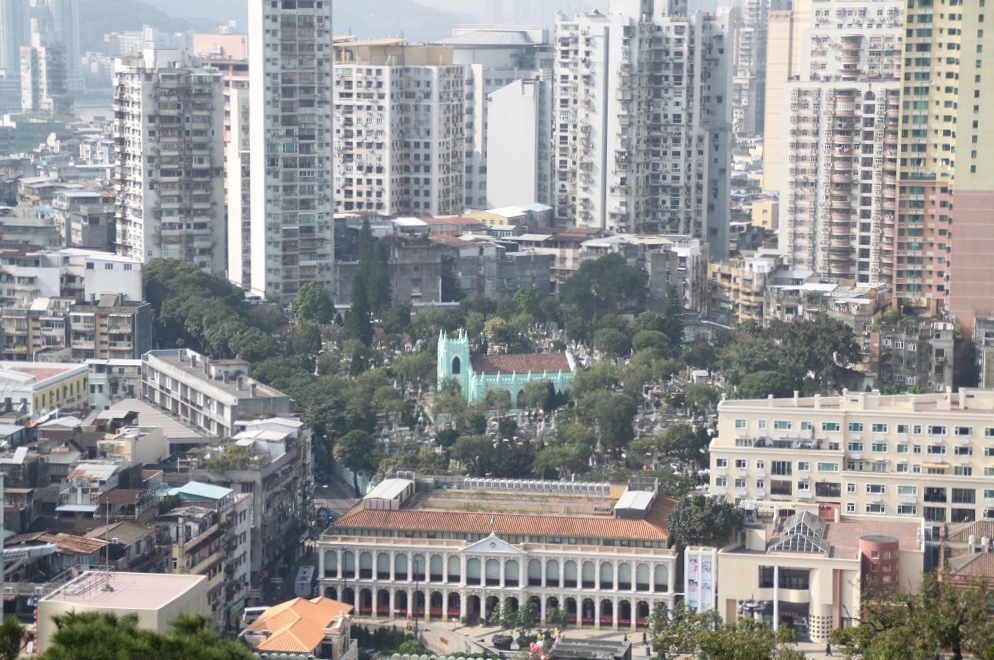
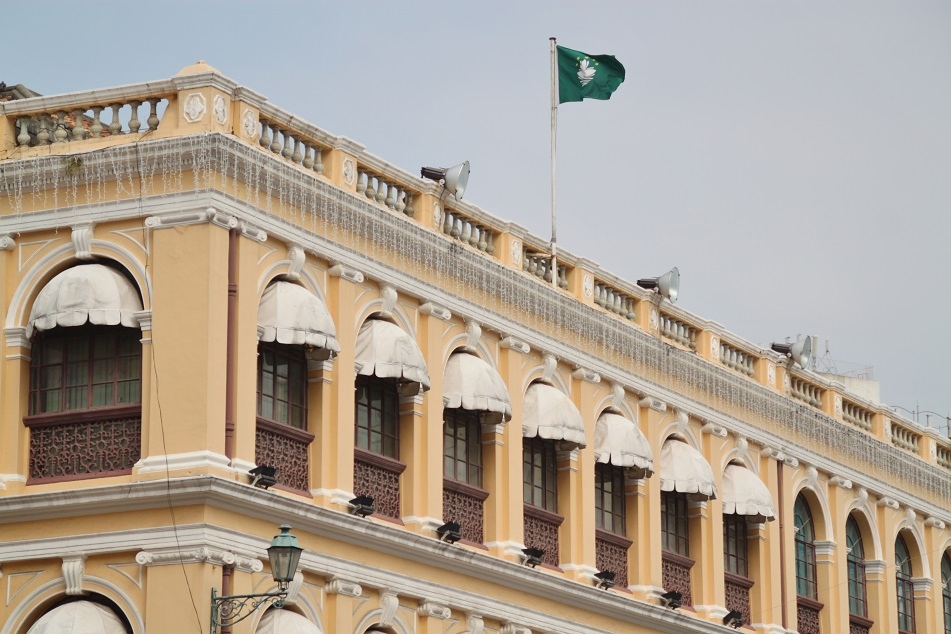
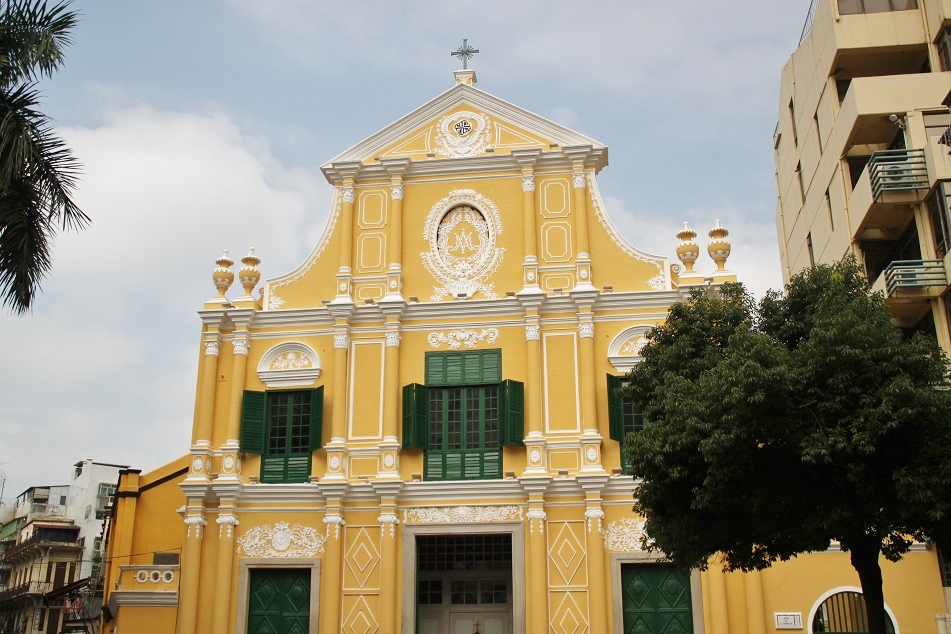
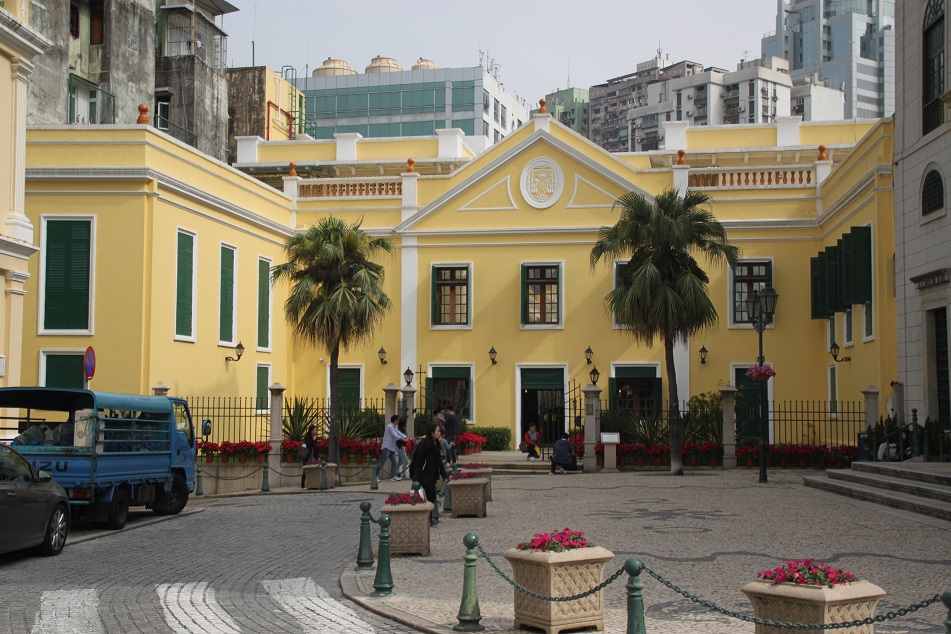
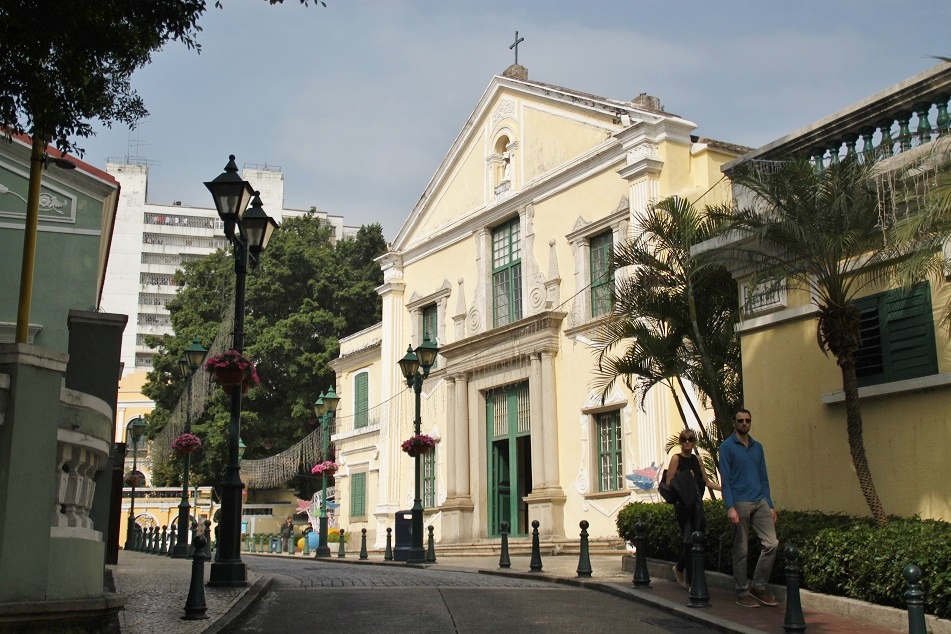
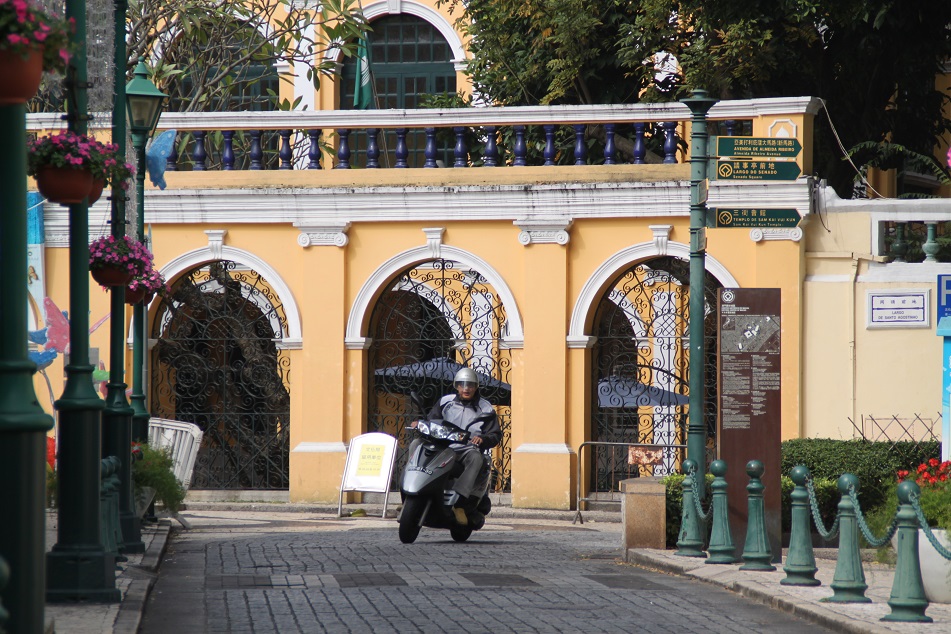
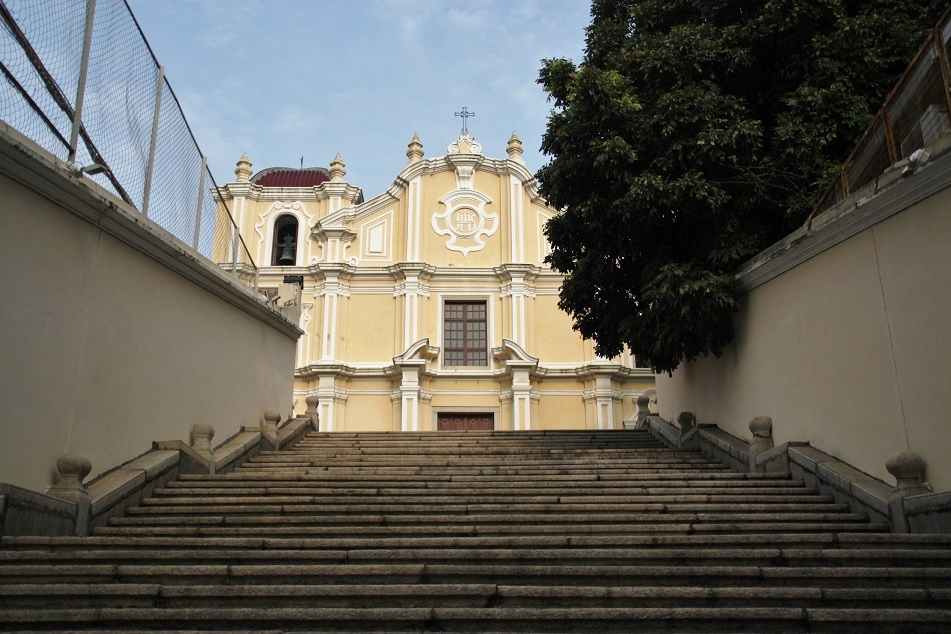
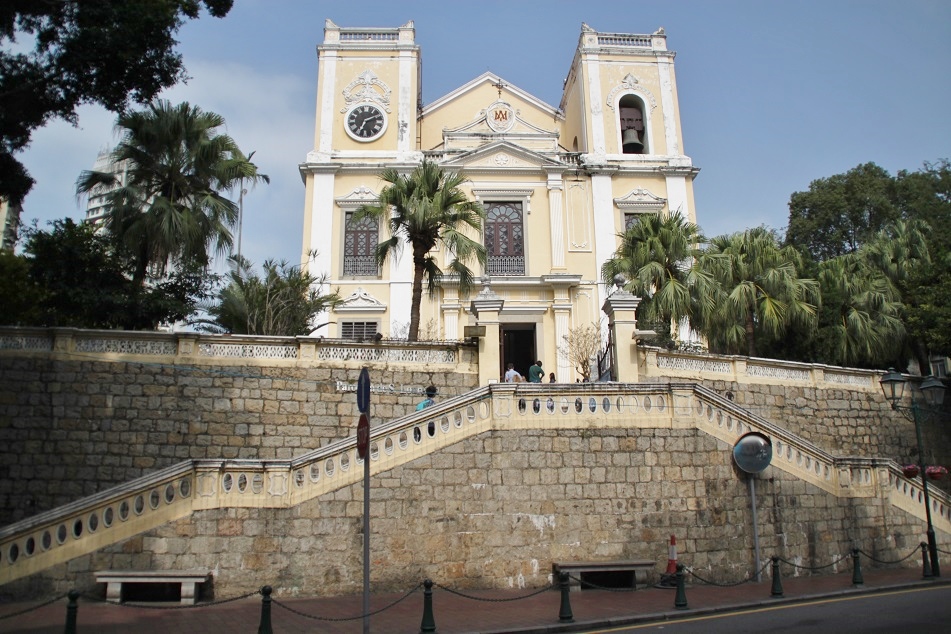
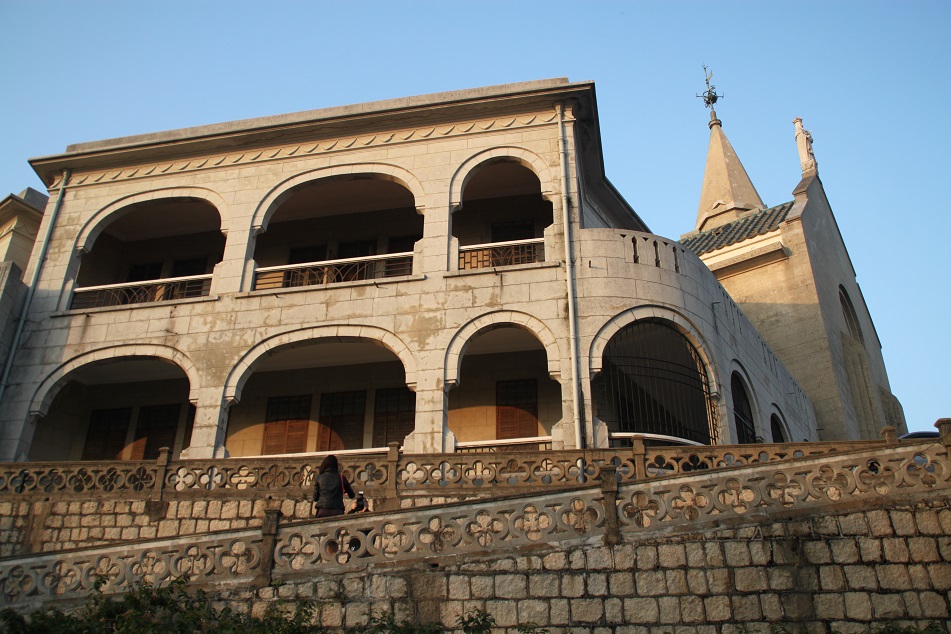
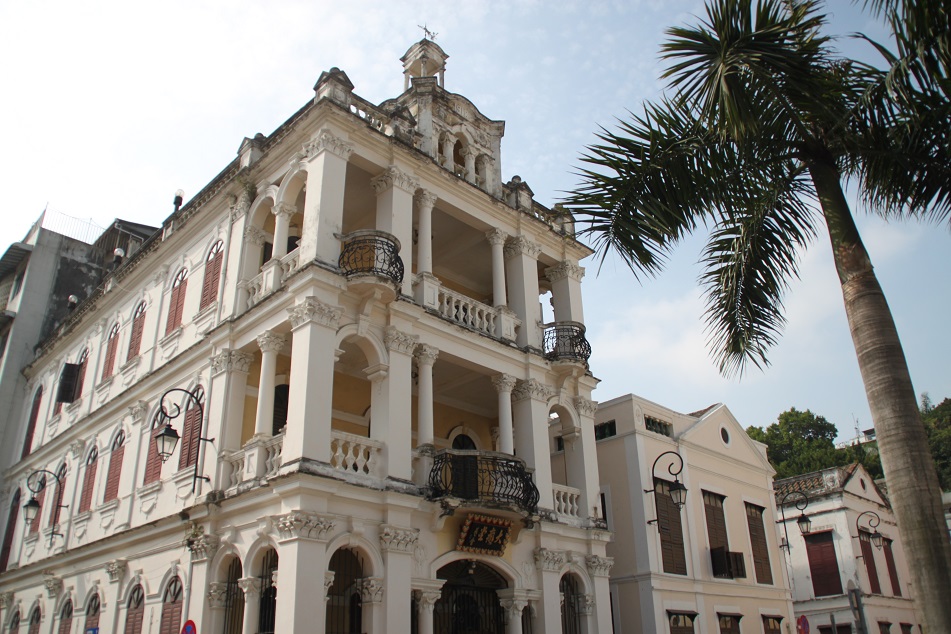
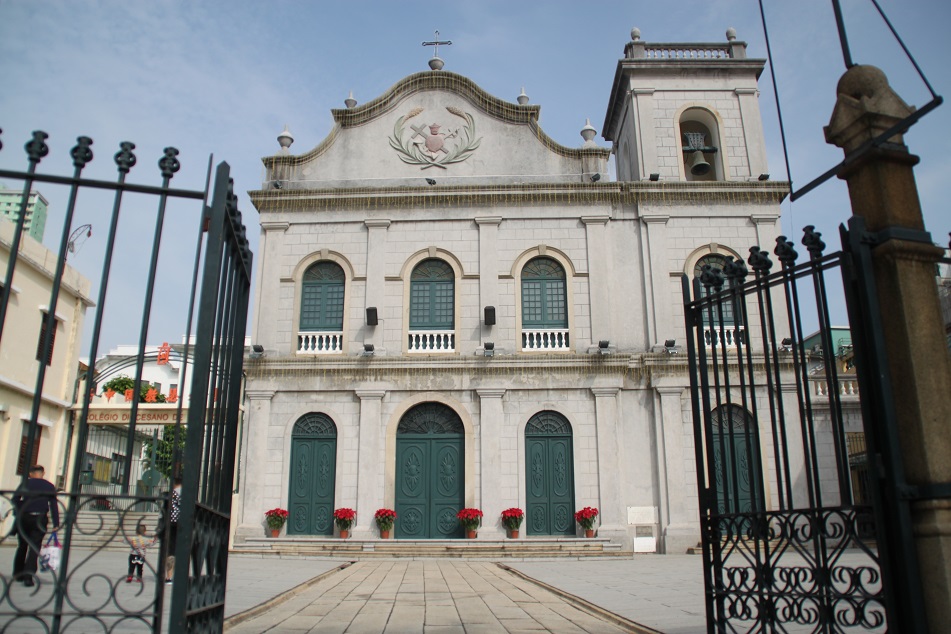

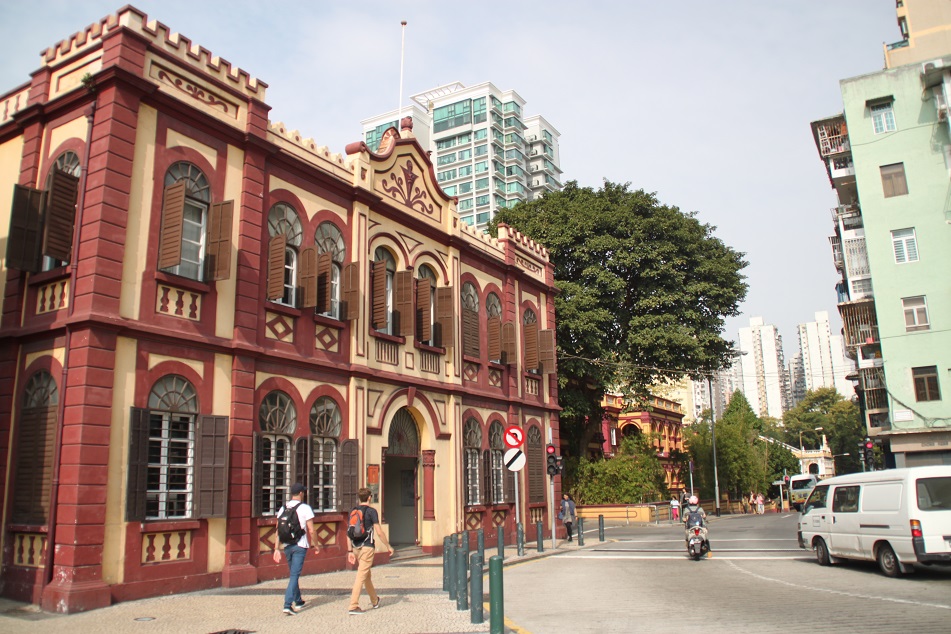
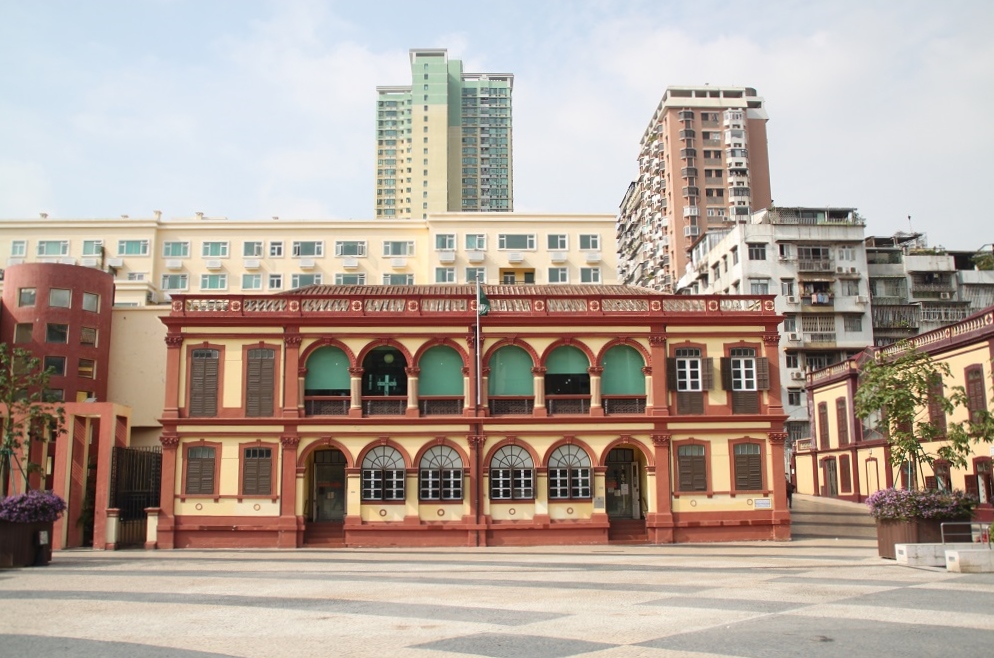
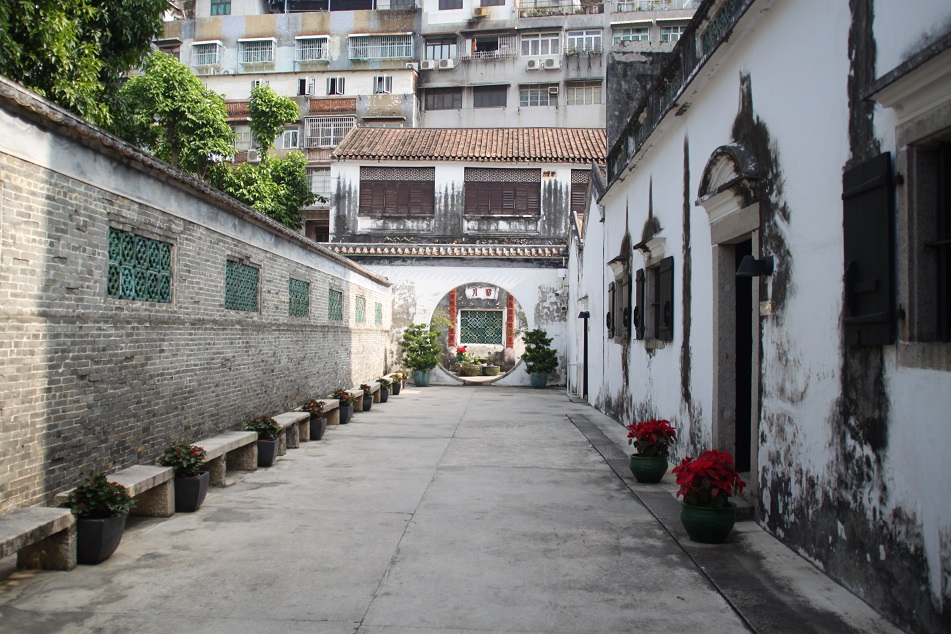
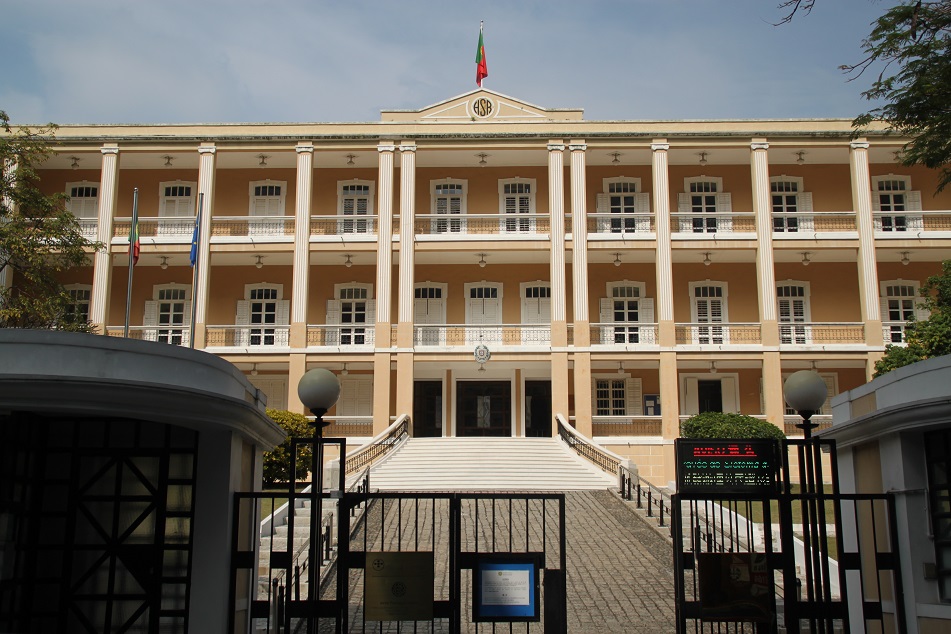
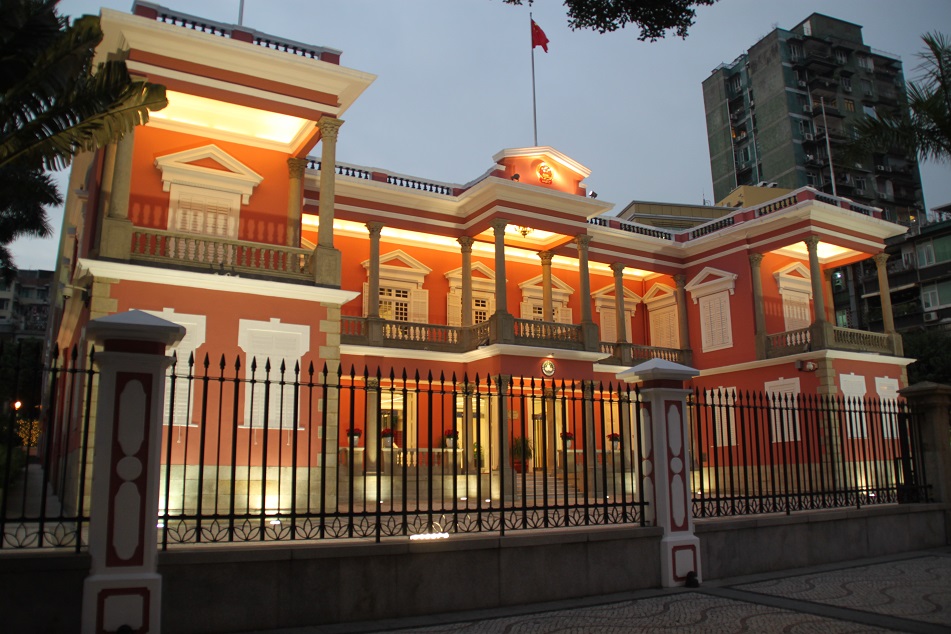
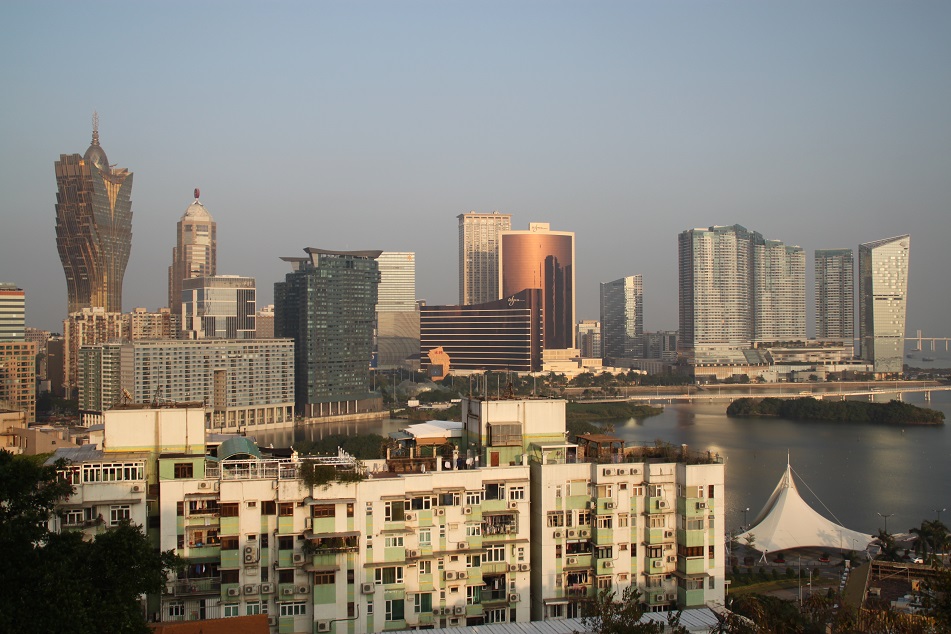
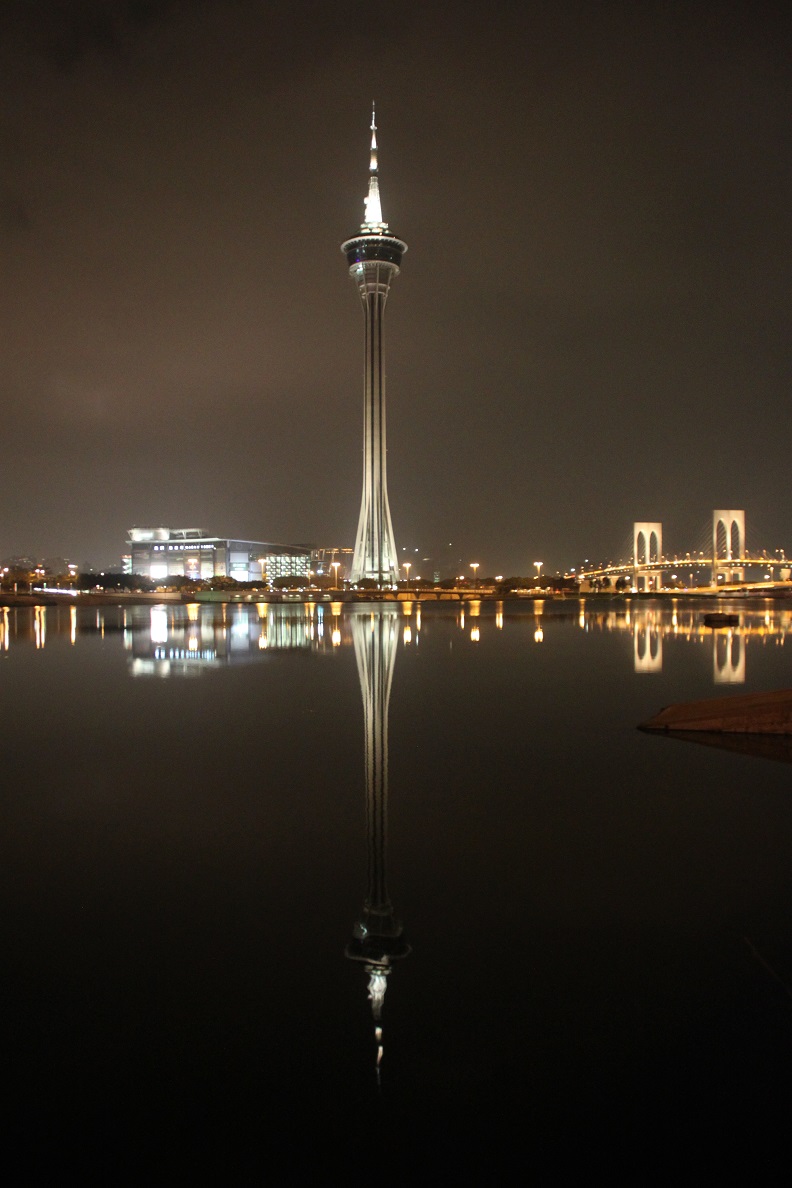
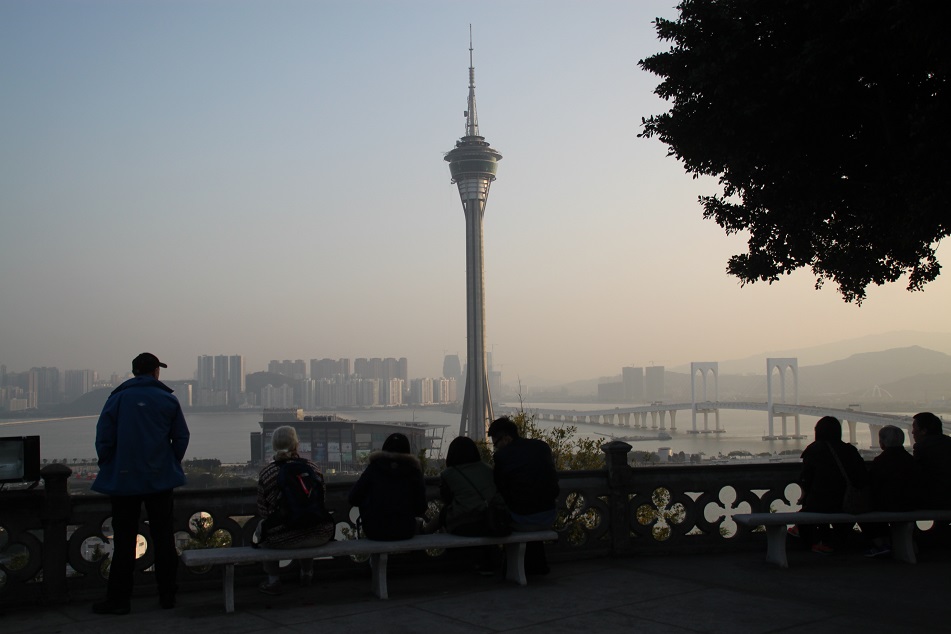
Great Post! Check my blog out here: http://www.dancinginviolentfields.com x
LikeLike
Thanks Elly-Grace. Glad you enjoyed this post.
LikeLike
Kebanyakan pejalan sering share gambar Ruins of St Paul dari segala sisi, lah ternyata dari tulisan Bama jadi tahu ada buanyak bangunan Portugis di sana yang kueren kueren begini. Foto-foto bangunannya berbicara semua, jadi membayangkan seperti apa jika Portugis terus mendiami Macau. Mungkin malah jadi negara Eropa rasa Asia ya? 🙂
LikeLike
Dan bangunan-bangunan peninggalan Portugis itu sebenernya gak terlalu jauh lho kalo mau jalan kaki keliling Macau. Kalo kata James Macau itu suasananya mirip Lisbon, selain karena bangunannya juga karena jalanannya yang naik turun mengikuti kontur tanah. Dan Macau bisa dibilang cukup sukses dalam menjaga bangunan-bangunan kolonialnya, jadi rasa Eropanya masih kerasa sampai saat ini meskipun secara resmi sudah menjadi bagian dari RRC.
LikeLike
ternyata macau tidak melulu Ruins of St Paul ya kak
LikeLike
Betul Winny. Tinggal jalan kaki dikit dari Senado Square – Ruins of St. Paul’s udah banyak ketemu gereja-gereja dan bangunan-bangunan tua peninggalan Portugis yang gak kalah cantiknya.
LikeLike
Fascinating to read the history. I went to Macau way back in 1978 I think it was. I mostly remember the ferry trip to and from HK! Beautiful colonial buildings, and that shot of the tower at night is magic.
Alison
LikeLike
Wow, Macau must have looked so different back then. The triads were still very much active at that time, I suppose. Did you feel their presence at all? Thanks Alison!
LikeLiked by 1 person
No, not at all, though I was completely ignorant of such things at the time.
LikeLike
Sounds like interesting times are ahead for Macau. How do the locals feel about the uncertainty?
LikeLike
What I know is not long after the protests in Hong Kong, some groups in Macau became very active in voicing their concerns. The thing is Macau is very small and even more dependent on China, so the social movements are not as vocal as the ones in Hong Kong.
LikeLiked by 1 person
Aduh itu foto Macau tower ajib banget… rasanya saya dah punya banyak foto gedung tua di Macau, laa baca postingan mas Bama, kok masih ada lagi yang bagus ya??? Tanda2 disuruh balik lagi hahahaha…
Sangkain Timor Leste itu yang terakhir, di akhir abad-20 gitu lho… soalnya inget penjajahan diatas dunia harus dihapuskan karena tidak sesuai dengan perikemanusiaan dan perikeadilan… blah-blah-blah… 😀 bener-bener lupa Macau serupa dengan Hong Kong 😀 😀 😀
Kalo di Macau itu, rasanya yang diinget adalah jalan sampai pegel ditambah naik-naik ke puncak gunung… eh bukit karena konturnya yang naik turun…
LikeLike
Kalo mau dapet pemandangan Macau Tower yang bagus harus ke Penha Hill mbak. Coba ke sana sore-sore deh, sebelum sunset. Dan soal jalanan naik turun memang bener sih, tapi enak buat sekalian olahraga habis makan egg tart dll, hehe.
LikeLiked by 1 person
Wadooow…. itu eggtaart disebut2 lagi… jadi laperrr…
LikeLike
Macau!!! One of my favourite place!!
Adis takdos
travel comedy blogger
http://www.whateverbackpacker.com
LikeLike
Because of the Portuguese colonial buildings or the food, or both? 🙂
LikeLike
So, you are saying a trade deficit with China isn’t a new thing? That has been going on about 300 years it seems! I didn’t realize there were so many colonial buildings in Macau.
LikeLike
Exactly! There’s a reason why in the second half of the 20th century China was dubbed a sleeping giant. It has always been a great power for thousands of years and today it is basically reclaiming its past glory — although sometimes by being not too nice to its neighbors. Macau is indeed a treasure trove for European colonial buildings in East Asia, Jeff.
LikeLike
A beautiful series of photos, Bama, and as usual you did a great job walking us through the place’s history. I find it strange that so few visitors stray from the main tourist stretch between St. Paul’s and Senado Square – some of the most beautiful areas in Macau (like the neighborhood around St. Lazarus’ Church) were almost empty.
LikeLike
Makasih banyak, James. I think most people think of Macau as a place with big casinos and some Portuguese colonial buildings — which is limited to everything between Senado Square and the Ruins of St. Paul’s. One only needs to veer off the main tourist trail to see that Macau has so much more to offer.
LikeLiked by 1 person
Pingback: Islands that Changed the World: Ternate & Tidore | What an Amazing World!
Gorgeous post. Do You know if Portuguese is yes spoken there?
LikeLike
Thanks for your kind words! Unfortunately Portuguese is now only spoken by less than 1% of the population of Macau (according to a census published in 2007).
LikeLiked by 1 person
Wow, awesome photos! I’ve been to Macau recently and I definitely loved the Portuguese influences. Check my Macau blog post here: http://irisinwanderland.com/
LikeLike
Thanks Iris. I’m glad you enjoyed the photos. Macau has done a better job in preserving its colonial heritage compared to Hong Kong, hence its unique charm.
LikeLike
Thank you for the history lesson! I was a teacher in Macau and let me tell you it´s a lively place, being next to China physically speaking!
LikeLike
Hi Shamim. Thanks for reading and sharing your thoughts. To most Indonesians, Macau is only associated with mega-casinos, which is such a shame given its pretty Portuguese colonial buildings, lively cultural scenes, and delectable dishes.
LikeLiked by 1 person
Dear writter, here I would like to amend you a historical concept- Macau never a Colony under Portuguese.
As I am Macau local, we learn from History class.
If you know Chinese, please find the history answer at https://www.google.com/amp/s/kknews.cc/history/mqmx6g.amp
It is a long story and Language barrier between Chinese ( two Brutish men represented Chinese government, but they played language trick on Chinese so that Chinese missunderstood those “contract”) and Portuguese government.
Thus Chinese was cheated by British men called, James Duncan Campbell, and Sir Robert Hart to sign “Sino-Portuguese Treaty of Peking” and “Protocol of Lisbon “.
In 1845, a Portuguese queen, Dona Maria II, announced Macau as a Free Harbour. But it is illegal announcement since Macau directly under Chinese government.
Later on this queen sent a Colonist leader, Joao Ferreira do Amaral to Macau. He did lots of Cruel and Illegal action to us.
1. Rejected to pay rental fee;
2. Expanded concession, like destroyed resident grave, took farming land, others areas ( happened a group of locals killed this leader as they were angry);
3. Deported Chinese custom, who work at border gate, out of Macau territory.
Hope above history information make others better understand Macau. Please do not say Macau is a Colony again.
LikeLike
Hi Yan. Thank you for this explanation from a local’s perspective. It is very common that history class is taught with certain degree of nationalism for different purposes, from building that sense of pride of one’s homeland, to forging a national identity, and outright propaganda. It was also very common for European powers to trick or cheat local governments all over Asia into an agreement which would benefit the former. And as per the definition, a colony is an area or region under the full or partial control of another country. If Macau wasn’t under Portuguese control, the 1999 handover ceremony between Portugal and China — signifying the transfer of sovereignty of Macau — wouldn’t have happened at all.
LikeLiked by 1 person